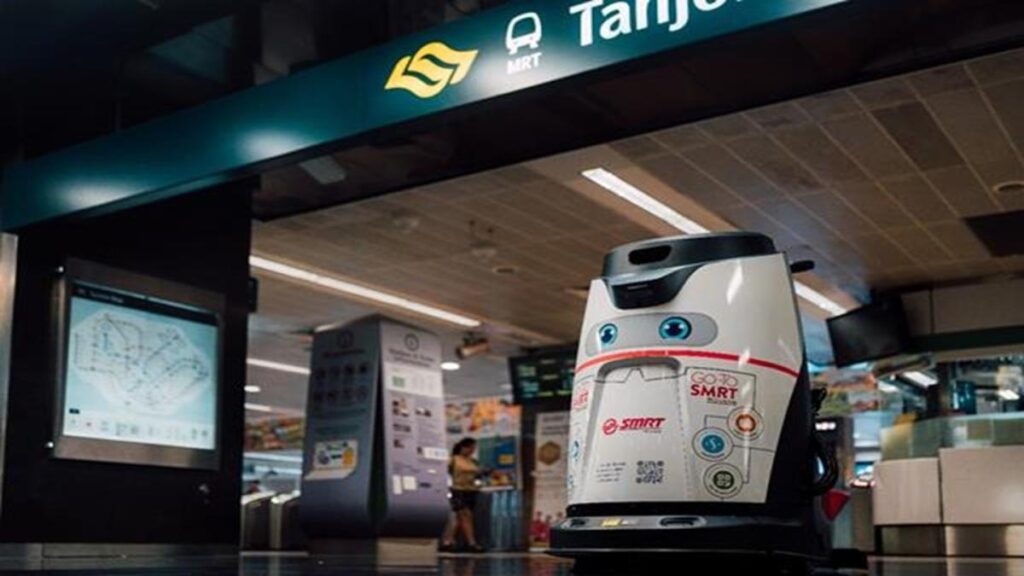Revolutionizing Cleanliness: SIMPPLE Deploys Autonomous Cleaning Robots Across Singapore MRT Lines
In a significant step forward for the facilities management sector, SIMPPLE has rolled out 89 autonomous cleaning robots along three of Singapore’s bustling mass rapid transit (MRT) lines. This deployment is part of a partnership with SMRT Trains, aimed at boosting both cleaning efficiency and workforce productivity at train stations.
Embracing Automation
In sync with the Singapore Government’s dedication to automation and digital transformation within its public transport systems, these innovative robots represent a shift towards a more modernized approach to cleaning. Equipped with cutting-edge sensors and artificial intelligence, these bots glide seamlessly through MRT stations, ensuring a thorough cleaning without any need for human intervention.
By integrating these autonomous cleaning machines into the existing workforce, SIMPPLE offers a smart solution that complements human efforts. Staff members can now prioritize more complex and nuanced tasks, such as maintaining restroom cleanliness, while the robots tackle routine cleaning jobs that can be done at an impressive pace—three times faster than a human could manage!
Training for the Future
A key element of this initiative is the training provided to cleaners at the MRT stations. Not only will they learn to operate these robots effectively, but they will also gain skills in data analysis and workflow optimization. This investment in human capital ensures that the technology enhances human capabilities rather than replacing them altogether.
SIMPPLE’s CEO, Norman Schroeder, expressed excitement about the project, stating, “We are thrilled to supply our robots all across Singapore’s MRT stations. Partnering with SMRT Trains to transform facility management operations with autonomous cleaning robots is a step in the right direction as Singapore transitions to outcome-based contracting.”
This rollout is more than just a technology upgrade; it marks SIMPPLE’s strategic advancement into the rail transport sector in Singapore, with aspirations to expand this initiative internationally.
A Broader Context
This development comes on the heels of significant investments in Singapore’s infrastructure, such as the S$242 million ($178.6 million) contract awarded to a joint venture for the construction of new tunnels for the Cross Island Line. Clearly, the drive towards modernity is palpable in the city-state, where innovation is the name of the game.
Conclusion
As we witness this exciting transformation in how cleaning is approached within public transport systems, it raises important questions about the future of work and the role of technology in our everyday lives. The seamless pairing of human expertise and robotic efficiency could very well set a precedent not just in Singapore, but globally, encouraging other rail operators to follow suit.
The AI Buzz Hub team is excited to see where these breakthroughs take us. Want to stay in the loop on all things AI? Subscribe to our newsletter or share this article with your fellow enthusiasts.




